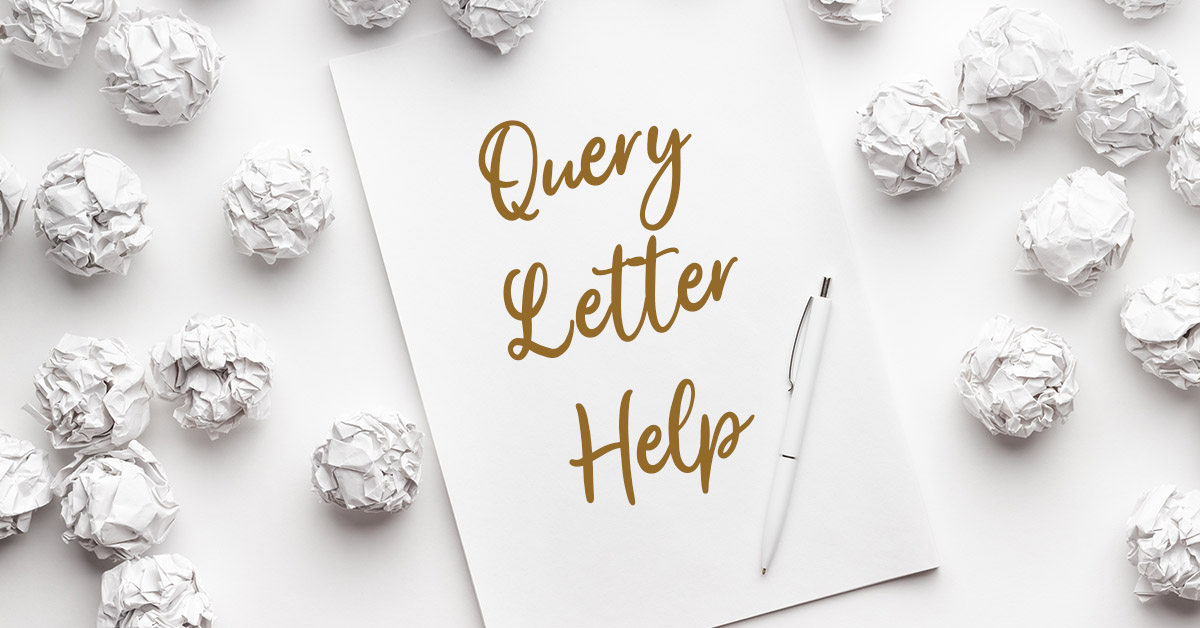If you are pursuing traditional publishing, odds are you already know what a query letter is. Your novel has tens or even hundreds of thousands of words, but yet when you sit down to write your query, you come up blank.
What gives?
Before you get frustrated and curl up in a ball sobbing under your desk, I want you to know that your ability to write a query letter doesn’t have any bearing on whether or not you’re a great novelist. A query letter is a sales pitch meant to catch the attention of a very niche target audience. It’s a different skill. But the good news is that like making yourself a better novelist, query letter writing is a skill that you can hone with the proper resources and practice.
There is hope. Now, roll up those sleeves and let’s get to work.
Do Not Rush the Process
You’ve spent a gazillion hours writing and editing your book. Your query letter needs the same tenacity. Would you publish the first draft of your novel? Absolutely not.
You cannot skimp on this step. Give your query letter the time and attention it deserves.
My 15 Steps for Writing a Query Letter
This is my method, but remember to do what works for you. When getting ready to write my query letter I…
- Researched query letter basics starting from scratch
- Read as many examples of actual query letters I could get my hands on
- Attended an online seminar about query letters
- Watched AuthorTube videos about query letters
- Bought a book about writing sizzling sales copy and applied the lessons to my query letter
- Wrote my query letter’s first draft
- Edited it
- Wrote a brand new one from scratch approaching the pitch from a new angle
- Edited that
- Compared the two
- Came up with a third
- Edited that
- Took a break (for several weeks)
- Approached with a fresh set of eyes and made a composite of the best parts of my previous attempts
- Hired a professional to help polish it
Why Not Just Hire a Professional in the Beginning?
Because you have to give your editor the best raw materials possible to work with. You aren’t going to make a diamond out of a potato. (And if you can, message me. I have a sack of potatoes I’d be willing to split 50/50.)
Otherwise, the draft of your query letter you give to an editor must be the most polished you can personally make it before you hand it over. Give it your all.
Also, and I can’t stress this enough, the type of editor you choose to look at your query letter matters immensely. Just like writing a novel is a different skill from writing a query letter, not all editors have honed the skill of editing query letters. A talented editor may be earth-shatteringly AMAZING at editing fiction. That still doesn’t mean they’re the best person to help with your query letter.
Literary agents are your target audience for this piece of writing. So the best person for this task, in my opinion, is an editor who also has experience as a literary agent. There are a ton of professionals that meet this criteria. Choose the one you feel you would work with the best.
Query Letter Basics: What to Include
- Word Count (Make sure your word count falls within the accepted range for your genre or it might be an automatic rejection from agents based on this criteria alone.)
- Genre
- Comps (Think of this as comparable books that would sell alongside yours. If your book was on the shelf in Barnes and Noble, what current books would be sitting next to it?)
- Basic pitch of the plot (Include the main character but not too many characters. And STAKES! What are the stakes?)
- Bio information about who you are as the author. This could be previous publishing experience if you have it. If not, just a line about you to give them a feel for you as a person.
Query Letter Resources:
Here are some amazing resources for further reading that can help you improve your query.
- The Query Shark – agent feedback on real query letters
- Jane Friedman’s Blog – a straightforward yet comprehensive breakdown of the basics
- How to Write a Sizzling Synopsis by Bryan Cohen
- Suzie Townsend’s Instagram – She does an #askagent that’s very helpful
- Literary Agent Pet Peeves – great blog by Emma Lombard
- Why Literary Agents Reject a Book after the First Page – by iWriterly
- How to Write a Query Letter – by author Alexa Donne
You Got This!
I hope this blog was helpful to you as you begin the process of writing your query letter. If you’d like to reach out to me, send a message on twitter @CandiceJarrett. The #WritingCommunity is a great resource for connecting with authors on varying stages of their journeys and is full of writers who love to cheer each other on. (me included!)
Happy writing and best of luck on your publishing journey!

